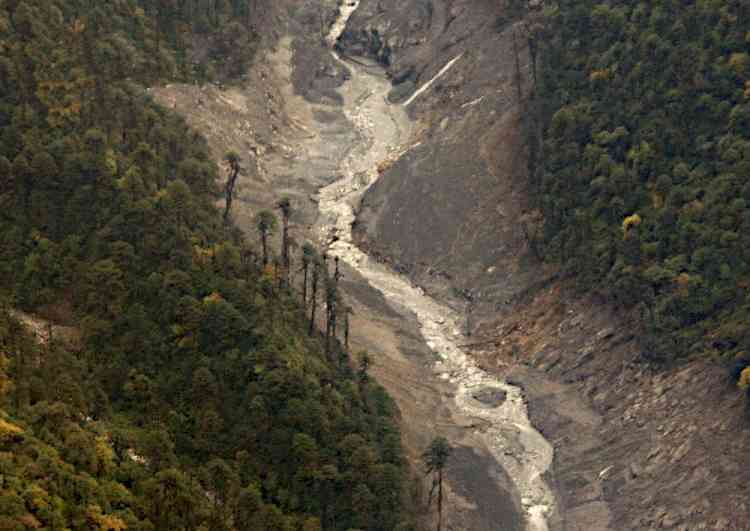Efforts on to clean Arunachal river after thousands of fish die as water turns black

Itanagar, Nov 6 (IANS) Various organisations along with experts from different parts of the country have swung into action to clean Arunachal Pradesh's Kameng river water which turned black following erosion and landslides leading to the death of thousands of fish, officials said on Saturday.
East Kameng District Deputy Commissioner Pravimal Abhishek Polumatla said that organisations from Bengaluru and Kolkata and experts teams from the Central Water Commission accompanied by local bodies and villagers are jointly working on a war footing to clean the water.
"Though the condition of the river water including turbidity oxygen level is improving, all precautionary measures including prohibitory orders under Sec 144 CrPC would continue to prevent people from venturing into the river," the Deputy Commissioner said.
The death of fish in Kameng river has continued for the past nine-ten days after the water turned black following erosion and landslides. To review the situation the Deputy Commissioner, accompanied by the Disaster Management Department Secretary, independent researcher Chintan Seth and officials of the National Disaster Management Force conducted an aerial survey on Friday.
"During the aerial survey it was observed that in the Warriyang Bung river there was intense erosion of river banks resulting in deposition of mud, debris, boulders and trees. This could be possibly due to a landslide or avalanche in the upper reaches of the Warriyang Bung river which could not be observed due to the presence of thick clouds."
"The width of the Warriyang Bung river has increased to a certain extent due to erosion. It was observed that the erosion happened approximately up to 30 kms downstream. Preliminary observation shows that no water body has been formed along the river," Polumatla told the media. The Warriyang Bung River is upstream of the Kameng river.
He said the Fishery and Primary Health Engineering Departments were continuously testing the water and samples were also sent to a Guwahati laboratory for testing. The condition of the aquatic life including fish was being monitored very closely. "Like an ailing person's treatment, we have to treat the Kameng river with a combined effort."
The Deputy Commissioner said that all waste from Seppa town and household discharges are regularly going into the Kameng river, polluting the water. The remote sensing agencies are also helping out and satellite images are being monitored. Polumatla said that to avoid food poisoning or any other health issues, restrictions have been imposed on the sale and consumption of fish from the Kameng river.
Local volunteers and police personnel are patrolling the river banks and the authorities have requested the local people not to venture into the river till the situation improves.
The pristine Kameng river originates in the northeastern state's East Kameng district which shares borders with China.


 IANS
IANS 










